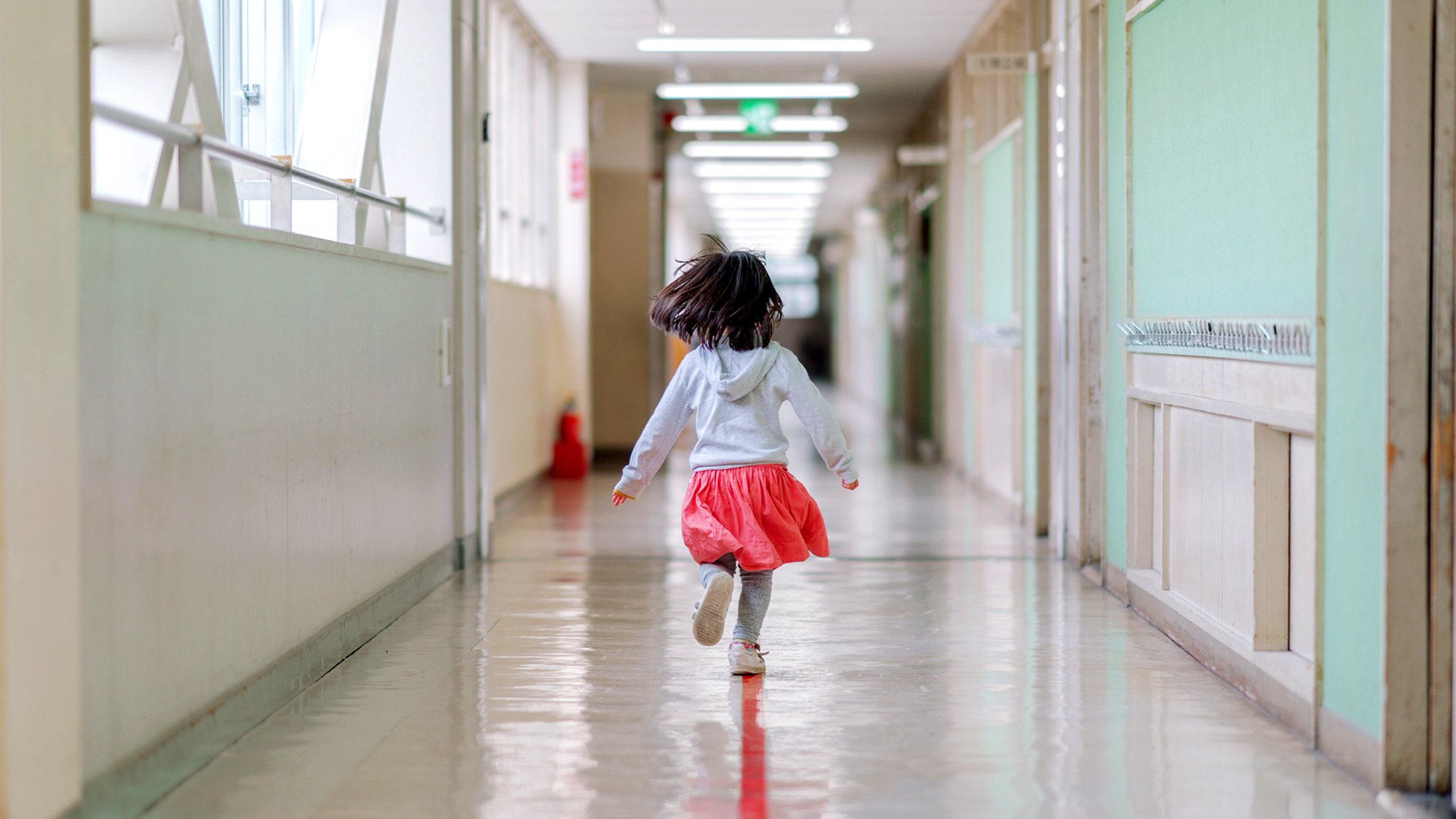
I knew my child was different since toddlerhood. While other kids would sit in a circle, fidgeting quietly and listening to the teacher read a story, my kiddo was gazing around the room, changing seating positions multiple times a minute, and furiously rubbing the carpet or the bottom of their shoes. I was quick to get them an appointment with a developmental pediatrician.
I was hopeful that we would be rendered a diagnosis. After that, I knew we could make a plan. However, when we finally got to attend our appointment, which was booked six months out, I left feeling even more defeated.
The doctor insisted that even though a child can have “ADHD tendencies,” it’s not generally acceptable to diagnose a child before age 5 — at minimum.
I told the doctor that I was totally convinced, based on research and observations, that my child had ADHD
I desperately wanted an answer, a springboard to help propel us forward.
The doctor told us to come back in six months or a year. I was given stacks of papers for various people to fill out, like my child’s preschool teacher.
I left feeling that as a parent, I wasn’t believed or trusted
I was also furious that friends and family dismissed my concerns by saying these behaviors were typical of a 3- and 4-year-old. I was well aware that some of the behaviors, like the need to move, were developmentally appropriate — but I still knew, deep down, that my child had ADHD.
We returned to the doctor as told, and again, we didn’t receive a diagnosis. She left me with an ounce of hope — that in time, we could consider a stimulant medication in the future, but not right now.
My child was clearly suffering in social situations, at school, and at home — without an answer
For example, when we would meet up friends for playdates, my kiddo would have major sensory meltdowns. Many times, I would have to put my child under my arm like a football and haul them out to the car. It was embarrassing, and I just kept receiving the same old “advice,” including that my child just needed more discipline. This indicated that I was failing as a mother. If I were just more strict, my child wouldn’t behave this way.
Despite the negative and critical feedback I received, I still knew that my child very likely had ADHD.
After the third visit to the same specialist, I decided to go a new route — and it turned out to be worth it
I took my child to a pediatric psychiatrist who was recommended by a friend. It took a good six months to get in, typical of specialists. My child was nearing age 5 at this point — you know, that promising age when apparently a child with ADHD can be diagnosed.
I went into the doctor’s office with my husband and child. I was loaded with paperwork to prove that I was convinced my child had ADHD. The doctor asked us many questions, including directly talking to our child. She also observed them and read over all the papers I brought. I wasn’t a bother — and I wasn’t wrong.
We left that day with a diagnosis and — finally — hope
The day my child was finally diagnosed with ADHD was a day filled with relief, not sadness. We finally had something in writing that confirmed what we knew — and this could be given to our child’s pediatrician and the school. Having a diagnosis helps a child have access to the education they are entitled to. We knew that until that point, our child’s behaviors were just that — behaviors to be managed and, at times, punished. But I knew they were symptoms.
What is the minimum age a child can be diagnosed with ADHD?
I asked Dr. Sanam Hafeez, a neuropsychologist in New York City who specializes in ADHD, for her thoughts. “Seven or eight is the ideal age for a proper diagnosis,” Hafeez advised, adding that some of the tests used to check a child for ADHD are “the most valid when a child is eight or above.”
She also noted that when a child is younger and may have ADHD, she has to make sure that she has “ruled out everything else.” Hafeez said that it’s irresponsible for a clinician to administer medication to a very young child without a thorough evaluation, and cautioned that “schools often push for medication because they don’t know how else to help” the child.
Though I was very frustrated with how long it took my child to be properly diagnosed — and in turn, helped — listening to Dr. Hafeez’s expert point of view gave me pause.
It’s important not to misdiagnose children with ADHD when they may have something else
According to Dr. Hafeez, “soft neurological signs, sensory issues, developmental delays, and other behavioral issues” can look like ADHD in younger kids — but not be ADHD.
If you are a parent who knows that something is up with your kid, I urge you to relentlessly pursue getting your child the diagnosis — and subsequent help — that they need. You are your child’s best advocate. Just know that in order to get a proper diagnosis, it’s going to take time and patience.




